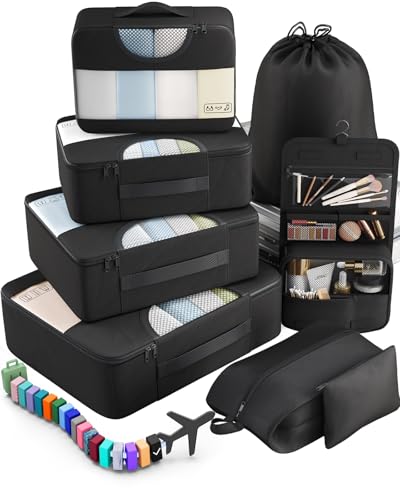In Rabat, they use Type C and E power plugs and outlets. The voltage is 220V, and the frequency is 50Hz.
So, you’ll need a travel adapter in Rabat. Their plugs and outlets are different from the Type A and B ones we use back in the States.
Quick Overview of the Plugs in Rabat:
- Plug type in Rabat: C and E
- Standard voltage: 220V
- Frequency: 50Hz
- Need a travel adapter? Yes, you do need a travel adapter
- Need a voltage converter? Could be needed, depending on the model
- Recommended plug adapter: Vintar Universal Travel Adapter Kit
This page is based on verified information from local power agencies, international standards organizations such as the IEC, and feedback from travelers who’ve recently been there.
The Only Travel Adapter You’ll Need in Rabat
Don’t let the wrong adapter ruin your trip. We don’t sell them, but we’ve done all the research to find the best one for Rabat—so you can charge up stress-free. Here’s the one we recommend:
Recommended Travel Plug Adapter
by 1,000+ travelers on Amazon
If you’ve already left and forgot your power adapter, don’t worry. Airports and shops in most countries carry basic adapters. That said, it’s always easier to bring a reliable one from home so you’re not stuck buying whatever happens to be available.
Rabat is sometimes paired with regional travel through Mauritania, Algeria, or Spain. Check which plugs you’ll need.
Power Outlets in Rabat
In Rabat, they use Type C and E power plugs and outlets.
Type C

Type C outlets have two round prongs and no grounding pin. Type E and F plugs usually fit too, but grounded plugs will need an adapter.
Type E

Type E outlets have two round prongs and a grounding pin at the top. Type C and F plugs will also fit.
Do You Need a Voltage Converter?
Since the voltage in Rabat doesn’t match the U.S. standard of 120V, you’ll likely need a voltage converter to avoid damaging your devices.
To avoid electrical issues, always check the voltage specifications on your device’s label before heading abroad. If it reads “100-240V, 50/60 Hz”, your device is dual voltage and can handle both 120V and 220-240V without requiring a converter. Most laptops, tablets, cameras, and smartphones have this feature.

Which Travel Devices May Need a Converter?
Don’t want to guess which converter works? Here are the best-reviewed ones worth checking out.
| Device | Need Converter? | Notes |
|---|---|---|
| Phone | ❌ No (usually) | Most modern phone chargers are dual voltage (100–240V) |
| Laptop | ❌ No (usually) | Check the power brick label for 100–240V |
| Hairdryer | ✅ Yes (often) | High wattage; many models are not dual voltage |
| Electric toothbrush | ⚠️ Check voltage | Some models are 110V only |
| Camera / DSLR | ❌ No (usually) | Most chargers are dual voltage |
| Power bank | ❌ No | Charges via USB, adapter is enough |
| Electric shaver / trimmer | ⚠️ Check voltage | Older or cheaper models may not support 230V |
| Tablet / iPad | ❌ No | All models are dual voltage |
| Portable fan | ✅ Yes (sometimes) | Many models are not compatible with 230V |
| Game console | ⚠️ Check voltage | Newer consoles like PS5 and Xbox are often dual voltage — check to be sure |
| Bluetooth speaker | ❌ No (usually) | Charges via USB |
| E-reader (Kindle, etc.) | ❌ No | USB charging only, no converter needed |
Top Travel Essentials to Pack
Besides the right plug, a few other items can make your trip run more smoothly. These practical travel tools help you stay organized, avoid stress, and travel lighter.
Digital Luggage Scale
Packing Cubes
Power Bank
More About Rabat
Rabat blends coastal beauty with royal elegance. Sitting on the Atlantic with golden beaches like Plage de Rabat, it delivers both sunbathing and city charm. More than just sand, it’s packed with history—Hassan Tower, Kasbah of the Oudayas, Chellah’s Roman and medieval ruins—all without the tourist crush.
It’s cleaner and calmer than Fes or Marrakech, making it ideal for relaxed strolls along leafy boulevards and riding the modern tramway that connects Rabat and Salé. Art lovers should check out the new Grand Theatre designed by Zaha Hadid—a cultural landmark opened in 2024—and buzz around local galleries and performance spaces.
Rabat’s got history layered in everywhere—from Phoenician, Roman, and pirate pasts to being crowned the imperial capital in 1912. It’s also a great value: budget accommodations and street eats are easy to find. Music lovers may time their visit for Mawazine or the Visa for Music festival, with affordable beer and cultural flair rounding out the experience.
Rabat uses the same plugs and outlets as the rest of Morocco.




